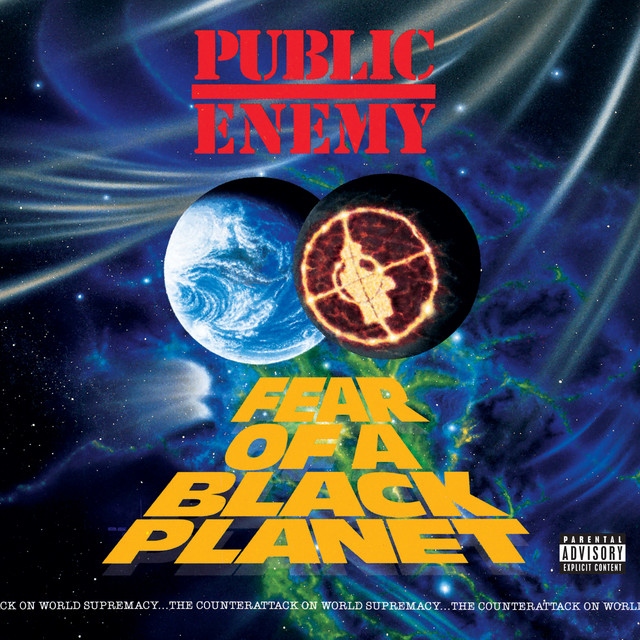If hip-hop had a Mount Rushmore of revolutionary albums, Fear of a Black Planet would be carved into the stone. Released in 1990, Public Enemy’s third studio album featured The Bomb Squad’s frenetic production, Chuck D’s booming call to action, and Flavor Flav’s unpredictable energy combined into a sonic Molotov cocktail that tackled race, media manipulation, and Black empowerment with a ferocity unmatched in mainstream rap at the time. The album pushed hip-hop forward, proving that rap was about the beats, the battle cries, about shaking the status quo, about making sure the world heard every syllable of the truth.
Here are five little-known facts about Fear of a Black Planet, each one as layered as the beats that defined it:
1. It Was Hip-Hop’s First Concept Album on Race and Power
Before Fear of a Black Planet, hip-hop albums were often collections of tracks without a singular, overarching message. Public Enemy changed that. Chuck D and The Bomb Squad approached the record as a fully realized concept, exploring the fear, resistance, and resilience of Black communities in America. The title itself was a direct challenge to racial paranoia, flipping the script on who should really be afraid. From the dense production to the interwoven themes of unity and power, the album wasn’t just a collection of songs—it was a manifesto.
2. The Bomb Squad Created a Sonic Earthquake with Over 150 Samples
Before sample clearance laws tightened, The Bomb Squad was an army of sonic architects. They layered up to 200 samples across the album, creating a chaotic, dense wall of sound that mirrored the world Public Enemy saw—relentless, noisy, and impossible to ignore. From James Brown to Funkadelic to rock and jazz records, the album was an intricate puzzle of sound bites, sirens, and screeching guitars, redefining hip-hop production. Today, an album like Fear of a Black Planet would cost millions to clear—back then, it was an act of sonic defiance.
3. NASA Helped Create the Album’s Cover Art
Hip-hop albums usually featured artists front and center on their covers—but Fear of a Black Planet went in an entirely different direction. The group commissioned B.E. Johnson, a NASA illustrator, to design the now-iconic image of a black planet eclipsing Earth. The visual played into Chuck D’s central theme: that white fear of Black power was an unnecessary and constructed paranoia, one that needed to be dismantled rather than fueled. The artwork remains one of the most striking and politically charged in hip-hop history.
4. “Fight the Power” Was Originally a Movie Soundtrack Cut—But Became an Anthem
Spike Lee personally asked Public Enemy to write a song for Do the Right Thing, and Chuck D delivered. But “Fight the Power” became much bigger than a movie track—it became the defining anthem of the era. Its bold indictment of American icons like Elvis Presley and John Wayne wasn’t just a throwaway line; it was a calculated strike against mainstream narratives that ignored Black contributions to culture. The song was so powerful that it overshadowed the album itself—people still talk about Fear of a Black Planet, but everyone knows “Fight the Power.”
5. Flavor Flav’s “911 Is a Joke” Was Originally a Joke—Until It Wasn’t
Flavor Flav, the group’s wild card, wrote “911 Is a Joke” in a haze of frustration after realizing how slowly emergency services responded to calls in Black neighborhoods. What started as an inside joke turned into a biting critique of systemic neglect. The song’s humor masked real anger, and it resonated with audiences who knew firsthand what it felt like to wait for an ambulance that never showed up. It became one of the album’s biggest hits—proof that even the comic relief in Public Enemy had something urgent to say.
Fear of a Black Planet was an education, a political statement, and a sonic war cry all rolled into one. It made hip-hop bigger, bolder, and impossible to ignore. More than three decades later, it remains a towering achievement, a reminder that rap at its best is a force of resistance.
Want to start a revolution? Put this album on repeat.







